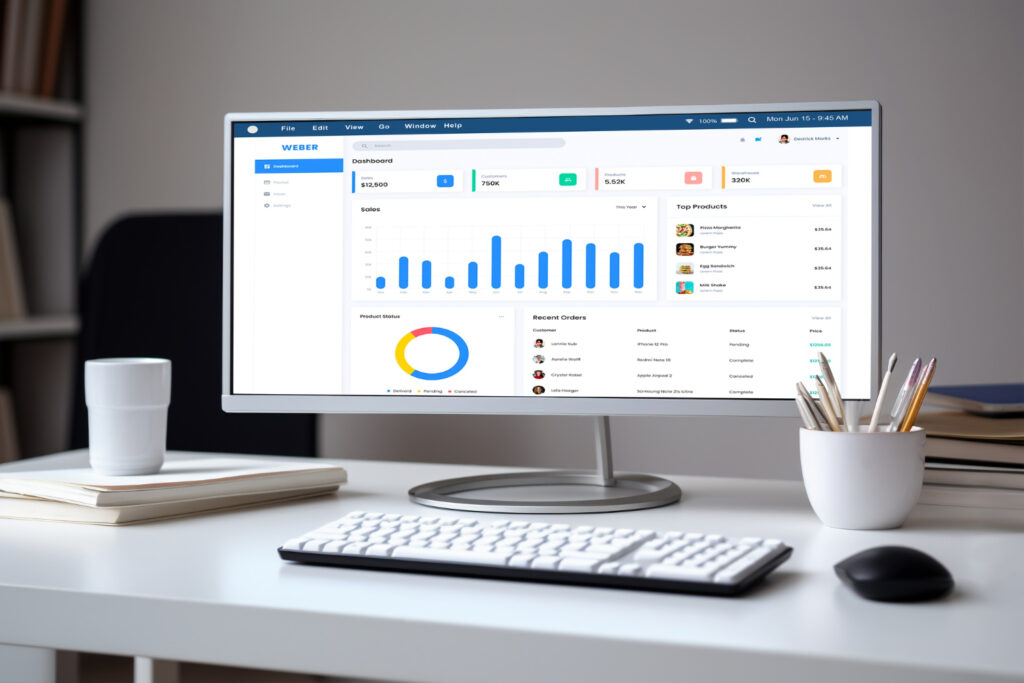
Effective Digital Marketing Strategies for Small Businesses
In today’s digital age, having a strong online presence is no longer optional for small businesses—it’s essential. With more consumers using the internet to discover products and services, small businesses must adopt effective digital marketing strategies to stay competitive. However, navigating the complex world of digital marketing can be challenging for small business owners who often have limited budgets and resources. This article will provide a comprehensive guide to effective digital marketing strategies tailored specifically for small businesses. We’ll cover essential tactics like search engine optimization (SEO), social media marketing, email campaigns, and content creation, along with practical tips on how to implement these strategies efficiently.
Introduction to Digital Marketing for Small Businesses
The Importance of Digital Marketing
Digital marketing refers to the use of online platforms and tools to promote products or services. It encompasses a wide range of tactics such as search engine optimization (SEO), social media marketing, content marketing, and email campaigns. Unlike traditional marketing methods like print or television, digital marketing allows businesses to reach a global audience, track performance metrics in real-time, and make data-driven decisions.
For small businesses, digital marketing is crucial for several reasons:
- Cost-effectiveness: Digital marketing strategies are generally more affordable than traditional marketing. This is particularly important for small businesses with limited budgets.
- Targeted outreach: Digital marketing enables businesses to target specific audiences based on demographics, interests, and behaviors.
- Measurable results: With digital marketing tools, businesses can track metrics like website traffic, conversion rates, and return on investment (ROI), allowing for continuous improvement.
Challenges Faced by Small Businesses in Digital Marketing
Small businesses often face unique challenges when it comes to digital marketing:
- Limited budgets: Smaller marketing budgets mean that small businesses have to be strategic in selecting the right digital marketing channels.
- Time constraints: Many small business owners wear multiple hats, which means less time to focus on marketing efforts.
- Lack of expertise: Small businesses may not have access to in-house digital marketing experts, making it difficult to implement and optimize strategies effectively.
However, with the right approach and understanding, small businesses can leverage digital marketing to achieve remarkable results. Below, we’ll explore the most effective digital marketing strategies tailored to the needs and challenges of small businesses.
Key Digital Marketing Strategies for Small Businesses
1. Search Engine Optimization (SEO)
Search engine optimization (SEO) is the process of improving a website’s visibility on search engine results pages (SERPs). The higher a site ranks, the more likely it is to receive organic (non-paid) traffic.
Why SEO Matters for Small Businesses
SEO is particularly important for small businesses because it helps them compete with larger companies on a level playing field. By optimizing your website, you can attract local customers actively searching for your products or services.
Key Elements of SEO
- Keyword Research: Identify the keywords your target audience is using to search for your products or services. Tools like Google Keyword Planner, Ubersuggest, and SEMrush can help.
- On-Page SEO: This involves optimizing individual pages on your website to rank higher. It includes using relevant keywords in titles, meta descriptions, headers (H1, H2, H3), and throughout the content.
- Off-Page SEO: This involves building backlinks to your website from reputable sources. The more high-quality backlinks you have, the better your site will rank.
- Technical SEO: Ensure your website is mobile-friendly, loads quickly, and has a clean structure to make it easy for search engines to crawl and index.
Tips for Small Business SEO Success
- Focus on local SEO by optimizing for location-based keywords (e.g., “coffee shop in [city]” or “best plumber near me”).
- Use Google My Business to increase visibility in local searches.
- Regularly update your website with fresh, relevant content to maintain your ranking.
2. Content Marketing
Content marketing involves creating and sharing valuable, relevant content to attract and engage a target audience. The ultimate goal is to drive profitable customer action, such as making a purchase or signing up for a service.
The Importance of Content Marketing
Content marketing helps establish your business as a trusted authority in your industry. By providing useful information, you build credibility and strengthen relationships with your audience.
Types of Content
- Blog Posts: Blogs allow you to provide detailed information on topics related to your business. They also improve your SEO by incorporating keywords and internal links.
- Videos: Video content is highly engaging and can be used to demonstrate products, share customer testimonials, or provide tutorials.
- Infographics: These are visually appealing ways to present data or information.
- Case Studies: Showcase how your products or services have solved specific problems for customers.
- E-books and Guides: Offer in-depth resources that your audience can download in exchange for their email addresses.
Tips for Content Marketing Success
- Focus on providing value rather than directly promoting your products.
- Use a content calendar to plan and schedule posts consistently.
- Repurpose content across multiple platforms to maximize reach.
3. Social Media Marketing
Social media platforms like Facebook, Instagram, Twitter, and LinkedIn offer small businesses a cost-effective way to reach their target audience.
Benefits of Social Media for Small Businesses
- Brand awareness: Social media allows businesses to showcase their brand personality and interact with customers directly.
- Customer engagement: It provides a platform for two-way communication where businesses can respond to customer inquiries, feedback, or reviews in real time.
- Increased traffic: Social media posts that link back to your website can drive more traffic and improve SEO.
Best Practices for Social Media Marketing
- Choose the Right Platforms: Focus on the social media platforms where your target audience is most active.
- Engage Consistently: Post regularly and engage with your followers through comments, likes, and shares.
- Use Visuals: Eye-catching images and videos tend to perform better than text-only posts.
- Leverage Paid Ads: While organic reach is important, investing in paid social media advertising can help you target specific audiences and get quicker results.

4. Email Marketing
Email marketing is one of the most effective ways to nurture leads and maintain relationships with existing customers. It involves sending promotional messages, newsletters, or updates directly to subscribers’ inboxes.
Why Email Marketing Works
- Personalization: Email allows businesses to send targeted, personalized messages to different segments of their audience.
- Cost-effective: Compared to other forms of advertising, email marketing is relatively low-cost and delivers a high ROI.
- Automation: Email marketing tools allow you to automate campaigns, saving time and ensuring timely delivery of content.
Types of Email Campaigns
- Newsletters: Keep your audience informed about company news, new products, or special promotions.
- Welcome Emails: Greet new subscribers with a warm welcome and provide them with valuable resources or discounts.
- Abandoned Cart Emails: Encourage customers who have left items in their shopping carts to complete their purchases.
- Drip Campaigns: Send a series of automated emails to guide leads through the customer journey.
Tips for Email Marketing Success
- Build your email list organically by offering valuable incentives like e-books or exclusive discounts.
- Segment your list to send more targeted messages based on customer behavior or preferences.
- A/B test your subject lines, content, and call-to-action buttons to optimize performance.
5. Pay-Per-Click Advertising (PPC)
Pay-per-click (PPC) advertising allows small businesses to display ads on search engines, social media, or other websites. You only pay when someone clicks on your ad, making it a cost-effective way to drive traffic.
Advantages of PPC for Small Businesses
- Immediate results: PPC ads can start driving traffic to your site as soon as they go live.
- Targeted audience: You can customize your PPC ads to target specific demographics, locations, or interests.
- Flexible budget: PPC campaigns allow you to set your own budget and adjust it as needed.
Best Practices for PPC Campaigns
- Keyword selection: Choose relevant keywords that align with your business goals. Tools like Google Ads Keyword Planner can help identify high-traffic keywords.
- Landing pages: Ensure that the landing page users are directed to after clicking your ad is optimized for conversions.
- Monitor and adjust: Regularly review the performance of your PPC campaigns and adjust your bids, keywords, or ad copy accordingly.
6. Influencer Marketing
Influencer marketing involves partnering with individuals who have a large following on social media to promote your products or services.
Why Influencer Marketing Works
- Trust: Consumers are more likely to trust recommendations from people they follow and admire.
- Targeted outreach: Influencers often have a highly engaged audience in specific niches, allowing you to reach your target market more effectively.
Tips for Running a Successful Influencer Campaign
- Choose the Right Influencers: Look for influencers whose audience aligns with your target market.
- Set Clear Goals: Define what you want to achieve, whether it’s brand awareness, website traffic, or sales.
- Track Performance: Use tracking tools to measure the success of your influencer campaigns in terms of engagement, traffic, and conversions.
7. Online Reviews and Reputation Management
For small businesses, online reviews play a significant role in building trust and attracting new customers. Positive reviews not only enhance your reputation but also improve your search engine ranking.
Importance of Online Reviews
- Builds credibility: Potential customers are more likely to trust your business if they see positive reviews from others.
- Boosts local SEO: Reviews on platforms like Google My Business can improve your visibility in local search results.
Best Practices for Managing Your Online Reputation
- Encourage satisfied customers to leave reviews.
- Respond to reviews, both positive and negative, in a professional and timely manner.
- Address negative reviews by offering solutions and showing that you care about customer satisfaction.
You can also read : Email Marketing Strategies for E-commerce Sales Boost
Conclusion: Building a Strong Digital Marketing Strategy for Small Businesses
Digital marketing offers small businesses an unparalleled opportunity to reach their target audience, build brand awareness, and drive sales. By adopting the right strategies—whether it’s SEO, social media, content marketing, or email campaigns—small businesses can compete with larger companies without the need for massive marketing budgets.
The key to success lies in understanding your target audience, focusing on value-driven content, and consistently optimizing your efforts. While it may seem overwhelming at first, starting with small, manageable steps and gradually expanding your digital marketing efforts can yield significant results over time.